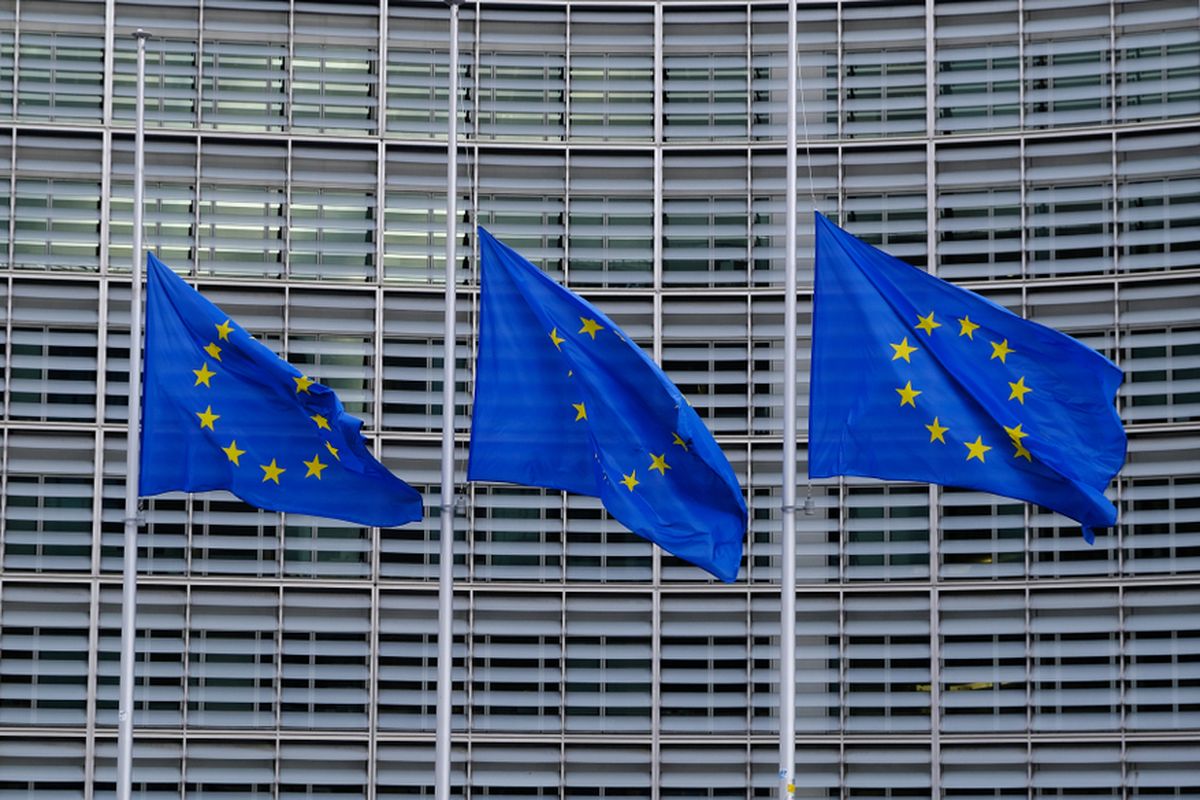Down to the Wire as EU Leaders Discuss Coronavirus Recovery Fund

"We want a result and we will continue working until we get that result," if need be until Sunday, said Latvian Prime Minister Arturs Karins upon arrival.
No early breakthroughs in pre-summit talks were reported.
"The crisis brought about by this pandemic, with all of its economic and social consequences, is the most severe we have had to face since the Second World War," European Council President and summit host Charles Michel said late Thursday.
The urgency is such that the leaders have ended a string of coronavirus-enforced videoconference summits and are meeting in person for the first time since the pandemic began its devastating sweep around the globe.
The usual summit venue, an intimate room high up in the urn-shaped Europa center, was deemed too snug to be safe, and instead, the leaders have been sent down to meeting room EBS-5, whose 850 square meters (9,150 square feet) normally fits 330 people.
Delegations will be cut to a minimum, leaving leaders more dependent on their own knowledge of complicated dossiers.
Read also: Jakarta's Reopening Still at 50 Percent Capacity until July 16
It should put a smile on the face of German Chancellor Angela Merkel, who has been in office for 15 years and seen countless leaders come and go.
Since the pandemic struck, she is seen as a safe pair of hands to lead her country through the crisis and now that Germany holds the rotating six-month EU presidency her stature will be even greater at the summit.
And throw in that she is celebrating her 66th birthday on Friday. There may be cake but it will hardly be a cakewalk for Merkel.
The members were already fighting bitterly over the seven-year, 1-trillion-euro EU budget when COVID-19 was still a local story in Wuhan, China, late last year.
Then the virus hit the EU head-on and estimates are now that the economy of the 19 countries that use the euro currency will contract by 8.7% this year.
It sent the EU into a panic as it was at a loss on how to coordinate policies of its member states early on.
Now, the EU's executive is proposing a 750-billion-euro recovery fund, partly based on common borrowing, to be sent as loans and grants to the neediest countries.
Merkel, who is in her last term and has her political legacy at stake, already got Germany to agree to join in a common debt program to alleviate the economic suffering in mostly southern and eastern member states.


































